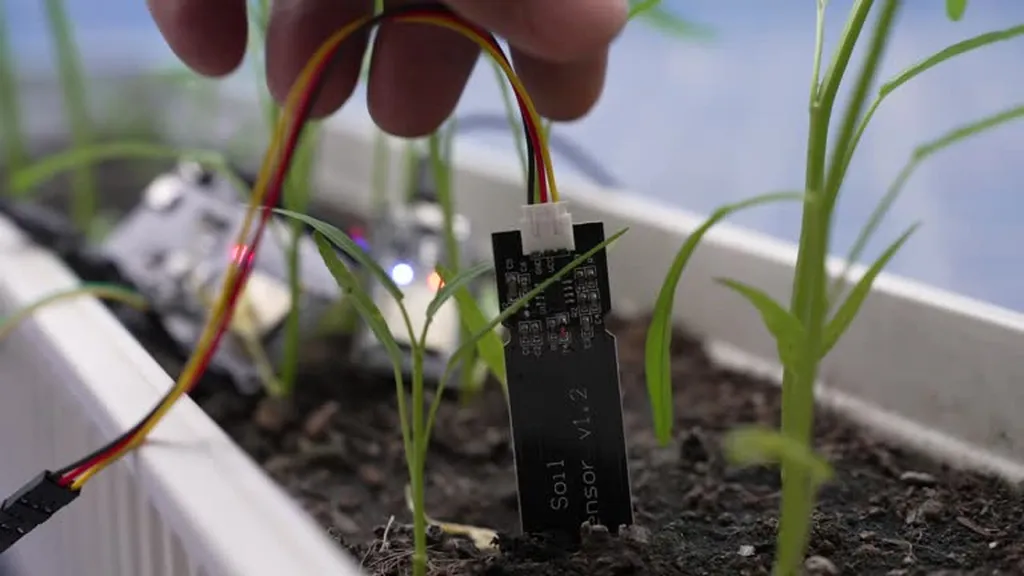In the heart of China’s agricultural innovation, a team of researchers led by Dr. Hao Pingping from the Farmland Irrigation Research Institute of the Chinese Academy of Agricultural Sciences has developed a groundbreaking system for real-time soil moisture and matric potential monitoring. This advancement, published in the journal *Guan’gai paishui xuebao* (translated as *Irrigation and Drainage*), promises to revolutionize agricultural water management and could have significant implications for the energy sector.
Traditional tensiometers, while effective, have long been plagued by the need for manual readings and frequent maintenance, limiting their scalability and practicality. Dr. Hao’s team sought to address these challenges by designing a novel system that leverages the power of the Internet of Things (IoT) for real-time, online monitoring. “Our goal was to create a system that could provide accurate, real-time data on soil water content and matric potential, enabling farmers and water managers to make informed decisions,” Dr. Hao explained.
The team employed four different models to understand the relationship between soil water content and matric potential: the van Genuchten (V-G) model, support vector regression (SVR) model, polynomial regression model, and Bayesian regression model. The V-G model emerged as the most accurate, with an impressive R² value of 0.98. This model’s ability to capture the nonlinear characteristics of soil retention curves makes it particularly suitable for predicting soil moisture dynamics in the field.
Building on this foundation, the researchers integrated the V-G model into a robust IoT architecture. The system utilizes an AIR780E microcontroller, an XGZP6895D digital barometric pressure sensor, and a 4G communication module. This combination ensures fast data transmission rates and stable connections, even in remote areas with complex environments. “The stability of our system is unparalleled,” noted Dr. Hao. “It enables real-time data acquisition, remote transmission, and online monitoring, which are crucial for efficient agricultural water management.”
The implications of this research extend beyond the agricultural sector. In the energy sector, efficient water management is critical for power generation, particularly in thermoelectric and hydroelectric plants. Accurate soil moisture data can help optimize water usage, reduce energy consumption, and improve overall plant efficiency. Moreover, the IoT-based system developed by Dr. Hao’s team could be adapted for monitoring other environmental parameters, further enhancing energy sector operations.
The stability and reliability of the new system were confirmed through extensive testing. The researchers found that it outperformed conventional wireless communication protocols, making it a promising tool for improving irrigation efficiency and agricultural water resource management. “This system has the potential to transform the way we manage water in agriculture and beyond,” Dr. Hao stated.
As the world grapples with the challenges of climate change and water scarcity, innovations like Dr. Hao’s soil moisture monitoring system offer a beacon of hope. By providing real-time, accurate data on soil water content and matric potential, this technology empowers farmers and water managers to make informed decisions, ultimately leading to more sustainable and efficient water use. The research published in *Guan’gai paishui xuebao* not only advances the field of agricultural science but also paves the way for broader applications in the energy sector, highlighting the interconnectedness of our natural resources and the technologies that manage them.

